In the digital age, where wireless services are the lifeblood of all operations, optimizing networks is not just an option but a crucial factor for business growth and competitiveness. From swift data access and seamless communication to running critical applications, everything hinges on an efficient and reliable wireless network. This article will introduce you to leading wireless services, cutting-edge technologies, and optimization strategies to help you fully harness the potential of wireless connectivity, enhance work efficiency, and deliver an exceptional user experience.
Table of Contents
Popular Types of Wireless Services: Unlimited Connectivity
The wireless world continues to expand with a variety of services, meeting the increasing connectivity needs of users and businesses. Below are some of the most common types of wireless services today:
Wi-Fi
Widespread application: Wi-Fi is the most common wireless solution, widely used in offices, homes, coffee shops, hotels, and many other public spaces.
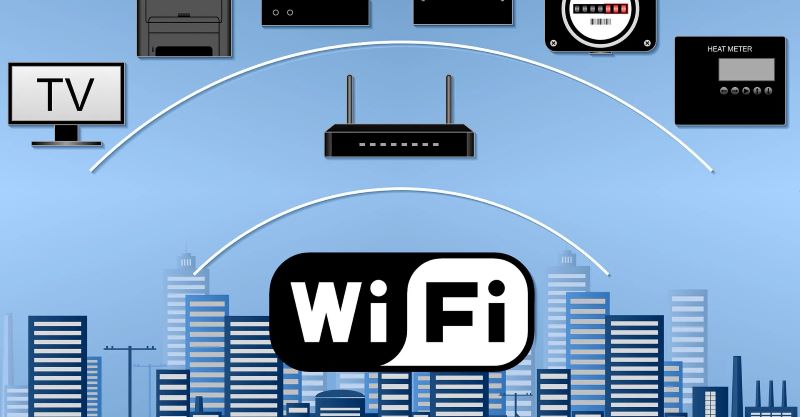
Convenience and easy connection: Wi-Fi allows multiple devices to connect simultaneously, providing fast and stable connection speeds for daily activities such as web browsing, video streaming, gaming, and online work.
Cellular (Mobile Networks)
Connectivity anytime, anywhere: Mobile networks like 4G and 5G provide high-speed internet access over a wide area, allowing users to access the internet anytime, anywhere via mobile phones, tablets, or other mobile devices.
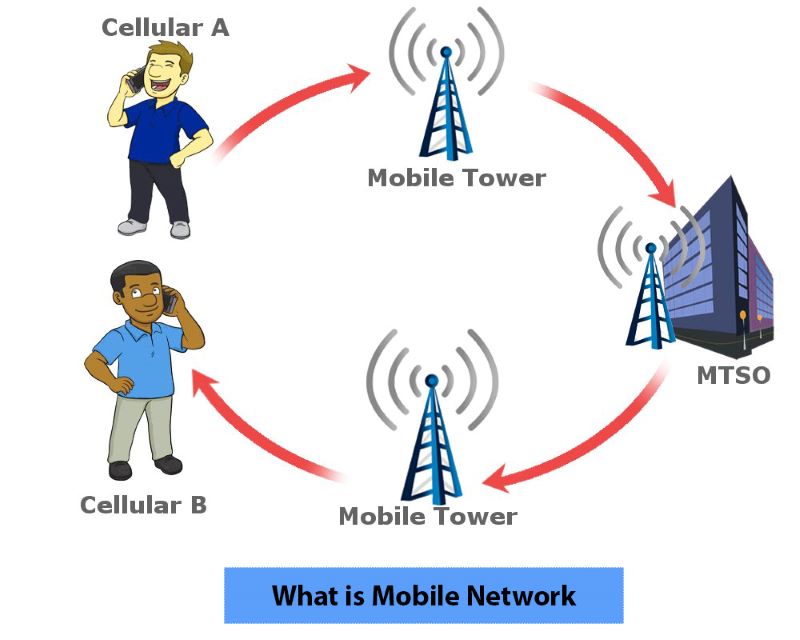
Diverse applications: Mobile networks serve not only personal internet access needs but also support enterprise applications, IoT, and services requiring high mobility.
IoT (Internet of Things)
Connecting everything: IoT is a network of smart devices connected to each other, enabling data collection and exchange for automation and process optimization.
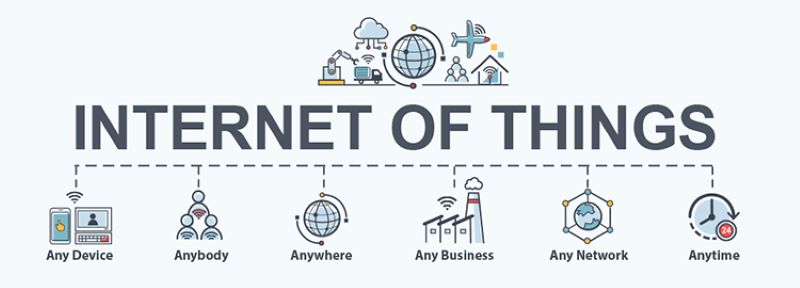
Diverse applications: IoT is applied in various fields such as smart homes, smart cities, smart manufacturing, smart agriculture, and healthcare.
Fixed Wireless
Wireless broadband: Fixed wireless provides high-speed internet connectivity via radio waves, replacing traditional fiber optic or copper cable transmissions.
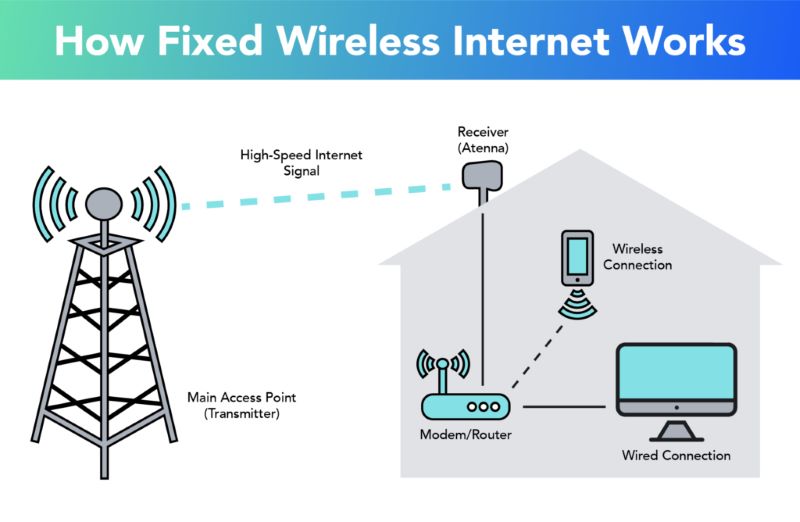
Suitable for hard-to-reach areas: Fixed wireless is an efficient solution for rural areas, remote regions, or high-rise buildings where deploying fiber optic cables is challenging.
Satellite
Global coverage: Satellite internet services provide internet connectivity from satellites orbiting the Earth, offering global coverage and being particularly useful for remote areas, islands, or regions with underdeveloped telecommunications infrastructure.

High cost: However, satellite internet services often come at a higher cost compared to other types of wireless services.
Benefits of Professional Wireless Services
In today's modern business landscape, where reliance on wireless technology is increasing, investing in professional wireless services is not just an option but a crucial strategy to ensure success and sustainable growth.
Enhanced Network Performance
Professional wireless services deliver superior network performance with faster data transmission speeds, lower latency, and the ability to handle large traffic volumes. This translates to more efficient work for employees, better customer experiences, and smoother operation of business applications.
Ensured Reliability
Professional wireless networks are designed and deployed by experts, ensuring high reliability and minimizing downtime. Robust backup solutions and rapid troubleshooting help businesses maintain continuous operation, avoiding disruptions and unnecessary losses.
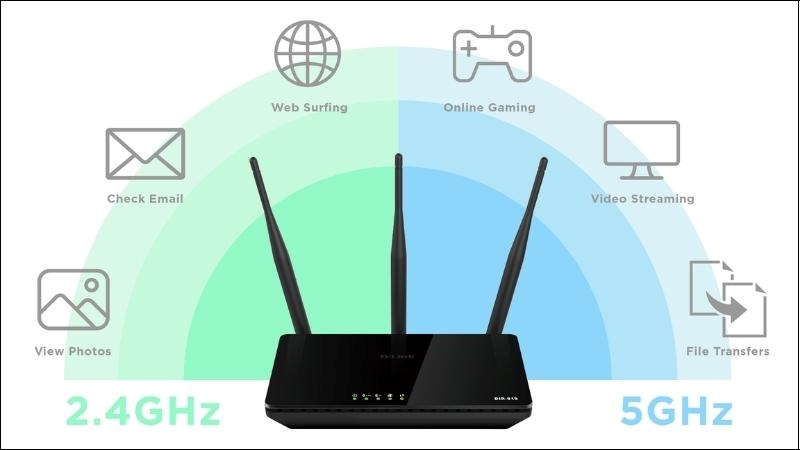
Improved Security
Security is paramount in the digital age. Professional wireless service providers typically employ advanced security measures such as data encryption, firewalls, and intrusion detection systems to protect networks from cybersecurity threats.
Flexible Scalability
Businesses' network usage needs are constantly evolving. Professional wireless services offer flexible scalability, allowing businesses to easily upgrade bandwidth, expand coverage areas, or add new features as needed, without requiring a complete reinvestment.
Cost Savings
While hiring professional wireless services may seem more costly initially, in reality, it can lead to significant long-term cost savings. Businesses avoid upfront investments in equipment purchases, hiring dedicated network management personnel, and maintenance costs, as well as unforeseen expenses due to technical glitches or failures.
Development Trends of Wireless Services: Smart Connectivity for the Digital Age
Wireless technology continues to evolve, delivering faster, more stable, and smarter connectivity experiences. Here are some noteworthy development trends in wireless services:
Wi-Fi 6: The New Standard for Wi-Fi Connectivity
Wi-Fi 6 (802.11ax) offers significantly faster data transmission speeds compared to previous Wi-Fi generations, meeting the increasing bandwidth demands of modern applications and devices. This technology minimizes latency, providing a smoother experience for real-time applications such as online gaming, video calls, and virtual reality. Additionally, Wi-Fi 6 is designed to support a higher number of simultaneous device connections, ensuring stable performance in high-density environments.
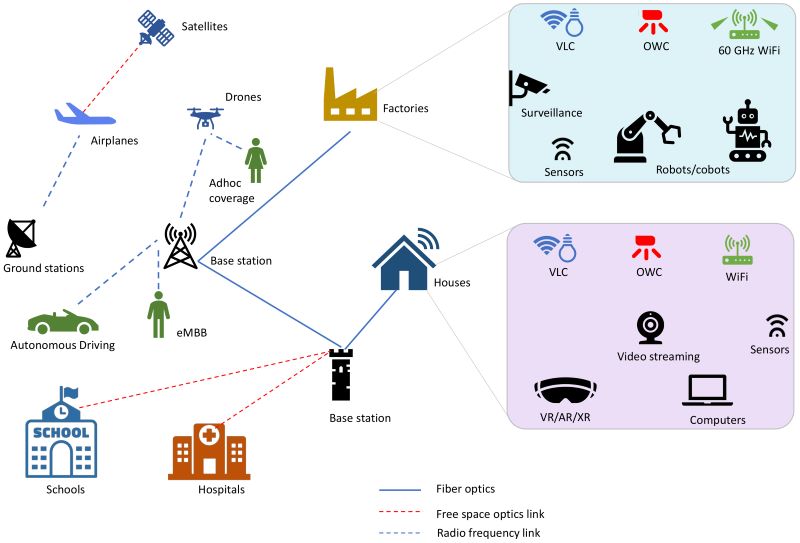
5G: The New Era of Mobile Networks
5G delivers exceptional connection speeds, enabling extremely fast data downloads and uploads. This paves the way for new applications and services like autonomous vehicles, remote surgeries, and interactive entertainment. With near-zero latency, 5G facilitates real-time applications and offers smoother interactive experiences. Furthermore, 5G's capability to connect billions of IoT devices unlocks significant potential for smart homes, smart cities, and Industry 4.0 applications.
Wi-Fi in Smart Spaces
Wi-Fi is being seamlessly integrated into smart home and smart business systems, allowing remote control and automation of devices through smartphones or other control interfaces. This integration enhances daily living and working experiences, offering convenience, comfort, and efficiency. Smart Wi-Fi systems can also adjust energy consumption automatically, contributing to cost savings and environmental protection.
Optimizing your network with top-tier wireless services is not just about adopting new technology; it's about building a solid foundation for business growth in the digital era. By choosing the right services, technologies, and providers, you can ensure that your network consistently operates at peak performance, meets all connectivity demands, and provides the best user experience. Let wireless technology be your powerful ally in propelling your business to new heights. Follow U2U Network to update the latest information about Blockchain


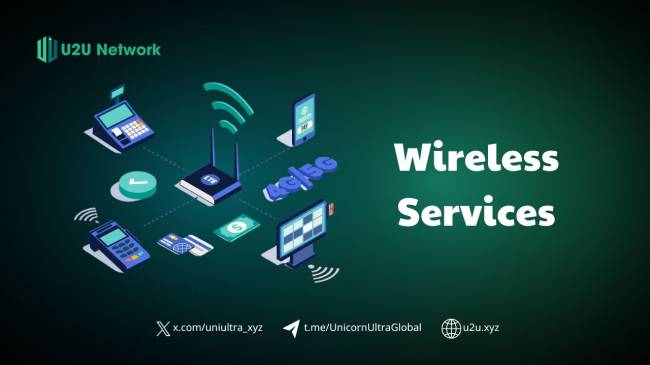


.png)
